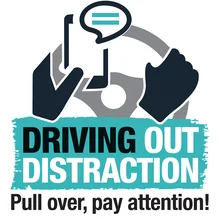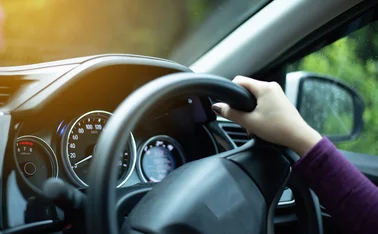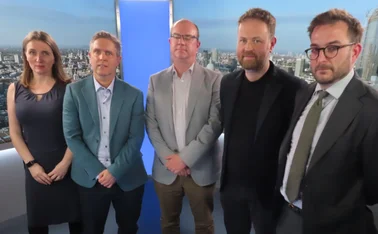
Driving out Distraction: Public would rather work for and deal with companies that ban distracted drivers

Need to know
- 40% believe it should be made illegal to make or receive calls even when using a hands-free device
- 76% would prefer to work for an organisation with a policy that completely bans driving and using the phone
- 81% said they would prefer to deal with a company that discourages its workforce from making phone calls on the road
Of the two-thirds (69%) of UK adults who make hands free calls while driving, many of them (40%) continue to do it despite admitting it negatively impacts their driving ability, research from Consumer Intelligence, in support of Post’s Driving Out Distraction campaign, reveals.
The poll of 1006 adults in the UK also revealed that over half (52%) of people who had been a passenger when the driver had taken a hands-free phone call thought the driver was distracted, suggesting that drivers themselves under-estimate how their attention is diverted from driving.
Research has shown that drivers are four times more likely to be involved in an accident when making a phone call – regardless of whether they are holding the phone or using a hands-free device. Distracted drivers took two and a quarter seconds to respond to dangerous situations compared with a second for drivers who were not distracted, according to a study by the University of Sussex and Open University.
Road safety charities have called for hands-free phone calls to be banned and it seems that many people agree. Consumer Intelligence’s research shows that two in five (40%) believe it should be made illegal to make or receive calls even when using a hands-free device.
Additionally, while only one in 10 (12%) of those polled claimed their employer requires them to speak on the phone while driving, three-quarters (76%) would prefer to work for an organisation with a policy which completely bans driving while using a phone.
Ian Hughes, Consumer Intelligence CEO, said: “This is a clear message to policymakers that even using hands-free devices to make phone calls while driving decreases the level of attention drivers pay, and increases the risks they pose on the road to themselves and those around them.
“82% of us have been driven by someone while they’re on the phone hands-free and we’re clearly judging those drivers more harshly than we judge ourselves. When more than half of us as passengers feel the driver is distracted while on the phone it’s time to look again at the rules.
“There is definite appetite among our driving population that the law be tightened up here to mean that people need to stop driving if they want to speak on the phone. Hands-free facilities aren’t enough and the message is pretty clear – pay attention and pull over.”
The research also suggests a commercial advantage to companies which encourage their staff to pull over if they are on the phone, rather than risk causing an accident. Some 81% said they would prefer to deal with a company that discourages its workforce from making phone calls on the road.

Join the campaign
Want to do something to help and support Post’s Driving out Distraction campaign? Sign up as a supporter and spread the word that you are doing your bit by committing not to use your phone while driving using #DrivingOutDistraction and #PayAttentionPullOver or get your firm to commit to our pledge to stop mobile phone use in company cars.
Only users who have a paid subscription or are part of a corporate subscription are able to print or copy content.
To access these options, along with all other subscription benefits, please contact info@postonline.co.uk or view our subscription options here: https://subscriptions.postonline.co.uk/subscribe
You are currently unable to print this content. Please contact info@postonline.co.uk to find out more.
You are currently unable to copy this content. Please contact info@postonline.co.uk to find out more.
Copyright Infopro Digital Limited. All rights reserved.
As outlined in our terms and conditions, https://www.infopro-digital.com/terms-and-conditions/subscriptions/ (point 2.4), printing is limited to a single copy.
If you would like to purchase additional rights please email info@postonline.co.uk
Copyright Infopro Digital Limited. All rights reserved.
You may share this content using our article tools. As outlined in our terms and conditions, https://www.infopro-digital.com/terms-and-conditions/subscriptions/ (clause 2.4), an Authorised User may only make one copy of the materials for their own personal use. You must also comply with the restrictions in clause 2.5.
If you would like to purchase additional rights please email info@postonline.co.uk







